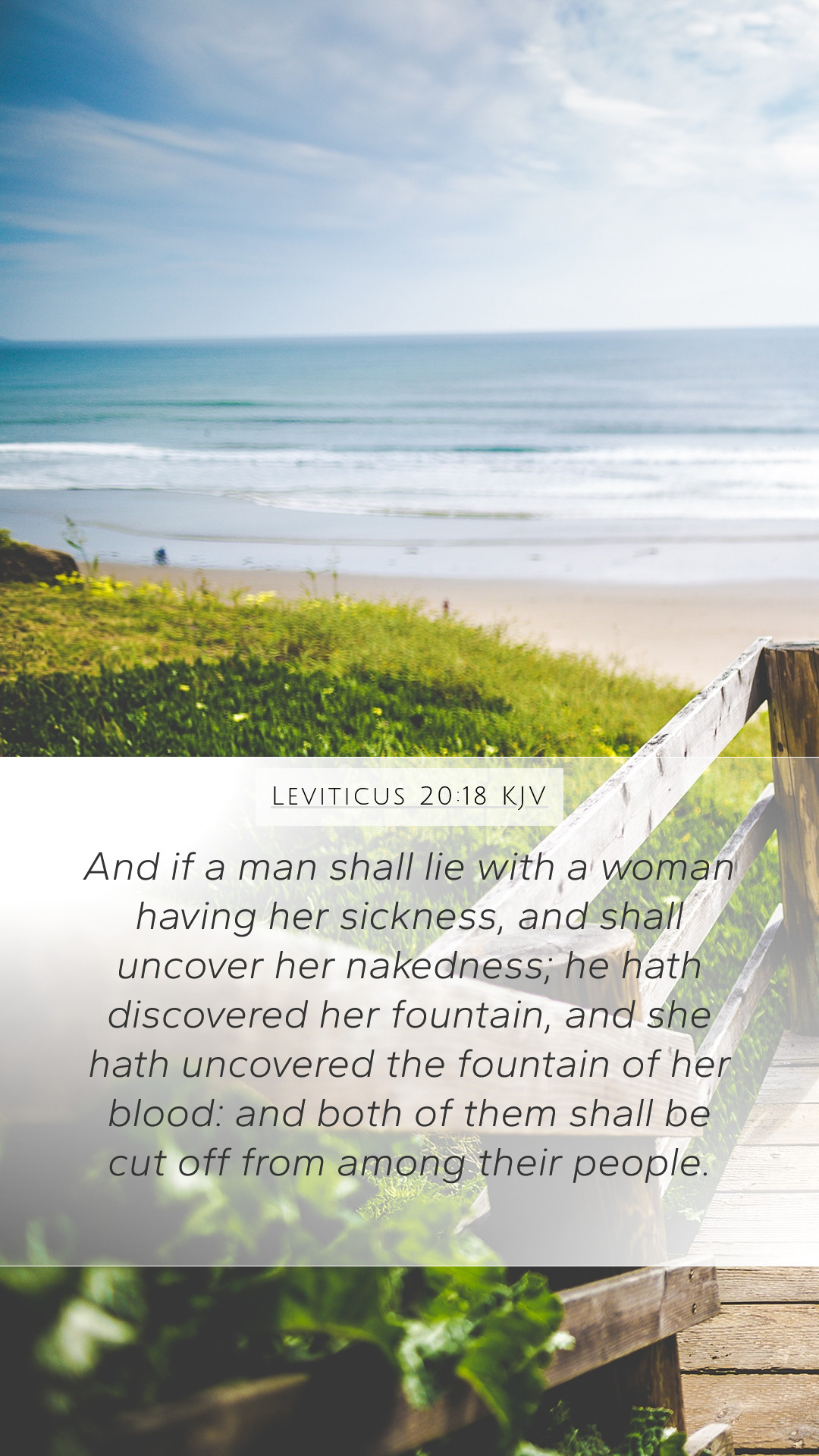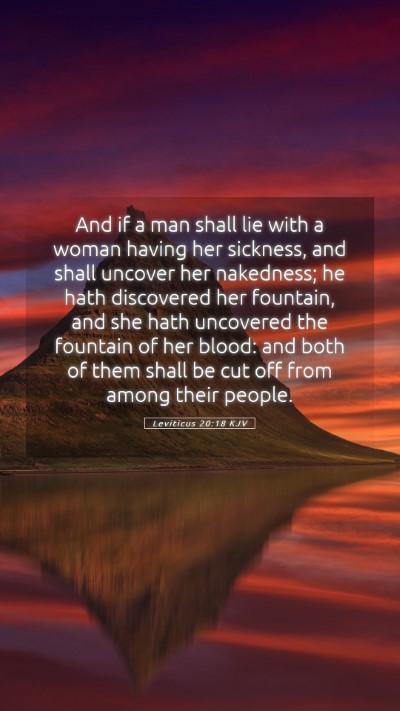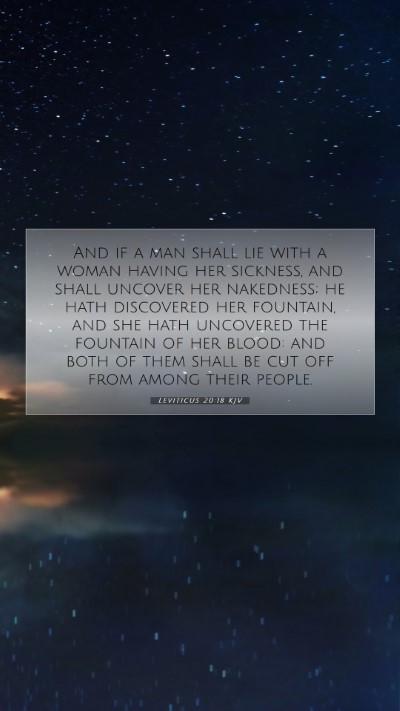Bible Verse Explanation: Leviticus 20:18
Verse: "And if a man shall lie with a woman having her sickness, and shall uncover her nakedness; he hath discovered her fountain, and she hath uncovered the fountain of her blood: and both of them shall be cut off from among their people." (Leviticus 20:18)
Understanding Leviticus 20:18
Leviticus 20:18 addresses a specific prohibition regarding sexual conduct during a woman's menstrual period. This verse is part of the broader Mosaic Law intended to set the Israelites apart as a holy people. Here, the Lord emphasizes the sacredness of human bodily functions and the purity required in their community.
Bible Verse Meanings
- Emphasis on Purity: The command reflects the importance of maintaining ritual purity, not just for individuals, but for the entire community.
- Covenantal Faithfulness: Engaging in acts contrary to God's law signifies a breach of the covenant between God and His people.
- Consequences of Disobedience: The phrase "cut off from among their people" indicates severe consequences for those who violate this law, showing the seriousness of sin in the community.
Bible Verse Interpretations
This verse has garnered various interpretations over the years. According to Matthew Henry, it underscores the gravity of sexual immorality and its potential to defile not just individuals, but the community as a whole.
Albert Barnes comments that this ruling served to impress upon the Israelites the need for strict adherence to the laws of God, promoting a culture of holiness and respect for the order established by the Creator.
Adam Clarke adds that the prohibitions in Leviticus often reflect profound implications regarding sin, warning believers against becoming indifferent to their moral responsibilities.
Study Insights and Applications
Understanding this scripture can inform the way modern believers approach issues of morality and purity in their own lives. While the direct application may differ today, the underlying principles concerning respect for God’s design for human life remain relevant.
Applying Bible Verses to Daily Life
Believers may reflect on how they observe purity in their lives and communities, recognizing that their actions can have spiritual ramifications. Furthermore, they can engage in discussions about the importance of upholding moral standards, as seen through the lens of this biblical passage.
Historical Context of Bible Verses
In the ancient Near Eastern context, laws regarding sexual conduct were crucial not only for societal order but also for religious observance. The Israelites were called to uphold practices that distinguished them from surrounding nations.
Related Bible Cross References
- Leviticus 15:19-30: Discussing the laws of cleanliness related to bodily discharges.
- Exodus 19:5-6: The call for Israel to be a holy nation.
- 1 Peter 1:16: "Be holy, for I am holy," emphasizing the call to holiness in the New Testament.
Conclusion
In summary, Leviticus 20:18 serves as an essential element of the law that frames the understanding of holiness in the life of the believer. It challenges us to reflect on our own practices, to commit to a life marked by purity, and to understand the significance of obedience in our walk with God.
For Further Study
For those engaged in Bible study groups, online resources and Bible study tools can facilitate deeper exploration of such passages. Many find it helpful to consult Bible study guides that include commentary for a richer understanding and better application of scripture in everyday life.


